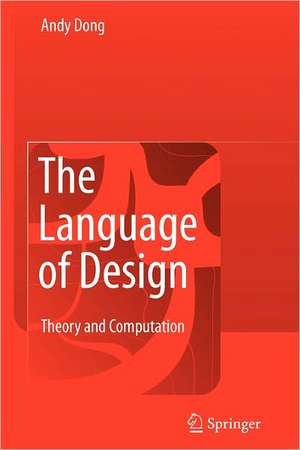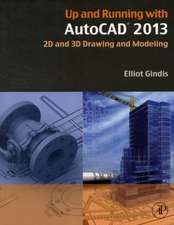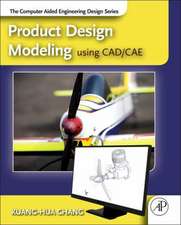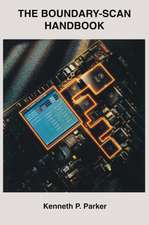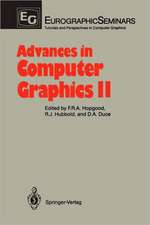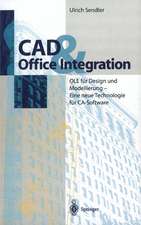The Language of Design: Theory and Computation
Autor Andy An-Si Dongen Limba Engleză Paperback – 13 oct 2010
| Toate formatele și edițiile | Preț | Express |
|---|---|---|
| Paperback (1) | 641.34 lei 6-8 săpt. | |
| SPRINGER LONDON – 13 oct 2010 | 641.34 lei 6-8 săpt. | |
| Hardback (1) | 647.61 lei 6-8 săpt. | |
| SPRINGER LONDON – 4 dec 2008 | 647.61 lei 6-8 săpt. |
Preț: 641.34 lei
Preț vechi: 801.68 lei
-20% Nou
Puncte Express: 962
Preț estimativ în valută:
122.72€ • 128.72$ • 102.16£
122.72€ • 128.72$ • 102.16£
Carte tipărită la comandă
Livrare economică 01-15 aprilie
Preluare comenzi: 021 569.72.76
Specificații
ISBN-13: 9781849968164
ISBN-10: 1849968160
Pagini: 212
Ilustrații: XVI, 194 p.
Dimensiuni: 155 x 235 x 11 mm
Greutate: 0.3 kg
Ediția:Softcover reprint of hardcover 1st ed. 2009
Editura: SPRINGER LONDON
Colecția Springer
Locul publicării:London, United Kingdom
ISBN-10: 1849968160
Pagini: 212
Ilustrații: XVI, 194 p.
Dimensiuni: 155 x 235 x 11 mm
Greutate: 0.3 kg
Ediția:Softcover reprint of hardcover 1st ed. 2009
Editura: SPRINGER LONDON
Colecția Springer
Locul publicării:London, United Kingdom
Public țintă
ResearchCuprins
Designing and the Language of Design.- Framing the Language of Design.- Aggregation.- Accumulation.- Appraisal.- The Language of Design and Its Politics.- Looking Back, Looking Forward.
Notă biografică
Andy Dong is a senior lecturer in design computing and cognition at the University of Sydney, Australia. He conducts research into the connections between language and design.
Textul de pe ultima copertă
The Language of Design: Theory and Computation articulates the theory that there is a language of design. This theory claims that any language of design consists of a set of symbols, a set of relations between the symbols, features that key the expressiveness of symbols, and a set of reality producing information processing behaviors acting on the language. Drawing upon insights from computational language processing, the language of design is modeled computationally through latent semantic analysis (LSA), lexical chain analysis (LCA), and sentiment analysis (SA). The statistical co-occurrence of semantics (LSA), semantic relations (LCA), and semantic modifiers (SA) in design text are used to illustrate how the reality producing effect of language is itself an enactment of design. This insight leads to a new understanding of the connections between creative behaviors such as design and their linguistic properties. The computation of the language of design makes it possible to make direct measurements of creative behaviors which are distributed across social spaces and mediated through language. The book demonstrates how machine understanding of design texts based on computation over the language of design yields practical applications for design management such as modeling teamwork, characterizing the formation of a design concept, and understanding design rationale.
The Language of Design: Theory and Computation is a unique text for postgraduates and researchers studying design theory and management, and allied disciplines such as artificial intelligence, organizational behavior, and human factors and ergonomics.
The Language of Design: Theory and Computation is a unique text for postgraduates and researchers studying design theory and management, and allied disciplines such as artificial intelligence, organizational behavior, and human factors and ergonomics.
Caracteristici
Demonstrates how machine understanding of design texts, based on computation over the language of design, yields practical applications for design management
